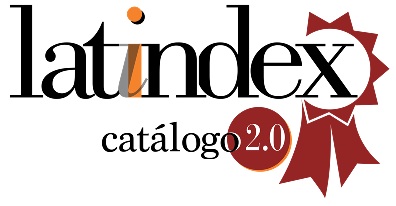Sustainable development: from its antecedents to the MDGs, SDGs and GLGs
DOI:
https://doi.org/10.5281/zenodo.10775787Keywords:
sustainable development, Brundtland Report, Millennium Development Goals (MDGs), Sustainable Development Goals (SDGs), Good Living Goals (GLGs)Abstract
This paper analyses documentary sources on the formal antecedents of the concept of sustainable development as proposed by the United Nations in the document “Our Common Future” or Brundtland Report and its evolution towards the Millennium Development Goals (MDGs), Sustainable Development Goals (SDGs), and Good Living Goals (GLGs) to establish a chronology of the relevant events determining the policies and actions that are currently carried out, as well as to get an adequate referential framework for future research on this topic. The analysis of the compiled information indicates that the formal antecedents of the concept date back to 1965, when the United Nations Development Programme (UNDP) was established by merging the pre-existing Extended Programme of Technical Assistance (from 1949) and Special Fund (from 1958). Later on, the first formal use of the term occurred in an official document from 1969 promoted by the International Union for Conservation of Nature (IUCN). The chronological presentation of relevant events makes it possible to highlight the leadership of the United Nations, its agencies or departments in this area –before and after the appearance of the concept–, together with the also relevant role of other organisations, namely different European instances.
Downloads
References
Adams, B. (2008). Environment and sustainability in a developing world. London: Routledge.
Agenda 2030 en América Latina y el Caribe (2019). Declaración sobre los Objetivos de Desarrollo del Milenio (ODM). Agenda 2030 en América Latina y el Caribe. https://agenda2030lac.org/es/node/839
Ayuntamiento de Madrid (2005). Campaña de Ciudades Europeas Sostenibles. Cartas y Declaraciones. Ayuntamiento de Madrid. https://www.madrid.es/UnidadWeb/Contenidos/Publicaciones/TemaMedio Ambiente/CiudadesEuropeasSostenibles/Campana.pdf
Brusco, A. (2010). El PNUMA y el Derecho Ambiental. En AA.VV., Quinto Programa Regional de Capacitación en Derecho y Políticas Ambientales (pp. 3-8). Panamá: Programa de las Naciones Unidas para el Medio Ambiente – Oficina Regional para América Latina y el Caribe.
Carbal-Herrera, A., Rosales García, C. y Casares Vizcaíno E. (2017). Cumbres de la Tierra entre Río-92 y París 2015: retos, logros y fracasos en el alcance de un desarrollo sostenible. Gerencia Libre, 3, 25-34. http://dx.doi.org/10.18041/2422-1732/gerencia_libre.0.2017.3191
Cervelló-Royo, R., Moya-Clemente, I., Perelló-Marín, M. R. y Ribes-Giner, G. (2020). Sustainable development, economic and financial factors, that influence the opportunity-driven entrepreneurship. An fsQCA approach. Journal of Business Research, 115, 393-402. https://doi.org/10.1016/j.jbusres.2019.10.031
Comisión Económica para América Latina y el Caribe (s.f.). Acerca de desarrollo sostenible. CEPAL. https://www.cepal.org/es/temas/desarrollo-sostenible/acerca-desarrollo-sostenible
Cuadrado-Ruiz, M. A. (2010). Derecho y medio ambiente. Medio Ambiente & Derecho. Revista Electrónica de Derecho Ambiental, (21). https://huespedes.cica.es/gimadus/
De Sousa (2020). La cruel pedagogía del virus. Buenos Aires: CLACSO.
De Vicentiis, G. (2012). La evolución del concepto de desarrollo sostenible. Revista Electrónica de Derecho Ambiental, (23). https://huespedes.cica.es/gimadus/
Dempsey, N., Bramley, G., Power, S. y Brown, C. (2011). The social dimension of sustainable development: defining urban social sustainability. Sustainable Development, 19(5), 289-300. http://dx.doi.org/10.1002/sd.417
Depledge, J. (2022). The “top-down” Kyoto Protocol? Exploring caricature and misrepresentation in literature on global climate change governance. International Environmental Agreements: Politics, Law and Economics, 22, 673-692. http://dx.doi.org/10.1007/s10784-022-09580-9
García-Miguélez, M. P. (2010). Prevención de Riesgos Laborales. Curtiba: Juruá.
Georgescu-Roegen, N. (2003). Bioeconomia. Verso un’altra economia ecologicamente e socialmente sostenibile. Torino: Bollati Boringhieri Editore.
Goodland, H. (1997). La tesis de que el mundo está en sus límites. En R. Goodland, H. Daly, S. El Serafy y B. von Droste (Eds.), Medio ambiente y desarrollo sostenible. Más allá del Informe Brundtland (pp. 19-36). Madrid: Trotta.
Hidalgo-Capitán, A. L., García-Álvarez, S., Cubillo-Guevara, A. P. y Medina-Carranco, N. (2018). Los Objetivos del Buen Vivir. Una propuesta alternativa a los Objetivos de Desarrollo Sostenible. En A.L. Hidalgo-Capitán, S. García-Álvarez, A.P. Cubillo-Guevara y A. P. Medina-Carranco (Eds.), Los Objetivos del Buen Vivir a escala global. Una crítica de los Objetivos de Desarrollo Sostenible y una propuesta alternativa transmoderna (pp. 51-98). Huelva: Bonanza.
Jiménez-Herrero, L. M. (2000). Desarrollo sostenible: “engranando” la economía mundial con la ecología global. Medio Ambiente Canarias, (17), 29-32.
Kotler, P. (2022). The battle between commercial marketing and social marketing. Social Marketing Quarterly, 28(4), 325-331. https://doi.org/10.1177/15245004221136334
Kotler, P. y Zaltman, G. (1971). Social marketing: an approach to planned social change. Journal of Marketing, 35(3), 3-12. https://doi.org/10.2307/1249783
Latouche, S. (2008). Breve trattato sulla decrescita serena. Torino: Bollati Boringhieri Editore.
Liberti, S. (2018). Los Objetivos de Desarrollo Sostenible: utopía y oportunidad. En P. O. Mochi-Alemán y C. Girardo (Coords.), Otros desarrollos, otra cooperación. Retos y perspectivas de la cooperación internacional ante la diversidad de los esquemas de desarrollo (pp. 139-158). México D.F.: UNAM.
Meadows, D. (1972). Los límites del crecimiento: informe al Club de Roma sobre el predicamento de la humanidad. México D.F.: Fondo de Cultura Económica.
Mebratu, D. (1998). Sustainability and sustainable development: historical and conceptual review. Environmental Impact Assessment Review, 18(6), 493-520. https://doi.org/10.1016/S0195-9255(98)00019-5
Muñoz, M. (2008). Cambio climático y la Cumbre de Bali. Ecología Política, (35), 19-21. https://dialnet.unirioja.es/servlet/articulo?codigo=2676600
Naciones Unidas (1987). Report of the World Commission on Environment and Development: Our Common Future Annex to Document A/42/427. Naciones Unidas. http://www.un-documents.net/wced-ocf.htm
Naciones Unidas (2002). Informe de la Cumbre Mundial sobre el Desarrollo Sostenible. Johannesburgo (Sudáfrica). 26 de agosto a 4 de septiembre de 2002. Naciones Unidas. https://documents-dds-ny.un.org/doc/UNDOC/GEN/N02/636/96/PDF/N0263696.pdf?OpenElement
Naciones Unidas (2007). La Conferencia de las Naciones unidas sobre el Cambio Climático en Bali, oportunidad para lograr un gran avance político. Naciones Unidas. https://unfccc.int/files/press/ news_room/press_releases_and_advisories/application/txt/cop13_opening_pr_esp.pdf
Naciones Unidas (25 de septiembre de 2015). La Asamblea adopta la Agenda 2030 para el Desarrollo Sostenible. Naciones Unidas. https://www.un.org/sustainabledevelopment/es/2015/09/la-asamblea-general-adopta-la-agenda-2030-para-el-desarrollo-sostenible/
Naciones Unidas (s.f.). Objetivos de Desarrollo Sostenible. Naciones Unidas. https://www.un.org/sustai nabledevelopment/es/objetivos-de-desarrollo-sostenible/
Objetivo Desarrollo Sostenible (s.f.). Objetivo Desarrollo Sostenible. El desarrollo sostenible es cosa de todo el mundo. Servicios. Objetivo Desarrollo Sostenible. https://objetivodesarrollosostenible.com/ser vicios/
Ríos y Valles-Boyselle, F. (2021). La necesidad de la utopía en la propuesta de desarrollos sostenible de la Agenda 2030. Entretextos, 12(36), 1-13. https://doi.org/10.59057/iberoleon.20075316.202036214
RTVE (25 de septiembre de 2015). La ONU adopta los nuevos Objetivos de Desarrollo Sostenible contra la pobreza, la desigualdad y el cambio climático. Radio Televisión Española. https://www.rtve.es/ noticias/20150925/onu-adopta-nuevos-objetivos-desarrollo-sostenible-contra-pobreza-desigualdad-cam bio-climatico/1227081.shtml
Simón, C., Barrios, Á., Gutiérrez, H. y Muñoz, Y. (2019). Equidad, educación inclusiva y educación para la justicia social. ¿Llevan todos los caminos a la misma meta? Revista Internacional de Educación para la Justicia Social, 8(2), 17-32. http://dx.doi.org/10.15366/riejs2019.8.2.001
Tingley, D. y Toomz, M. (2021). The effects of naming and shaming public support for compliance with international agreements: an experimental analysis of the Paris Agreement. International Organization, 76(2), 445-468. http://dx.doi.org/10.1017/S0020818321000394










































